The team at Agricane Ltd have shown how a relatively simple and easy-to-apply biological program, has significantly improved yield results on Kaombe farm, Malawi.
In the study, an increase in yield of up to 11% tons cane per hectare (TCHa), and 12.5% increase in recoverable sugar value (RV, a measure of the value of the sugar and molasses in the tested juice) was achieved from MN1 cane in its 4th ratoon. Applications of Andermatt’s products were done 2 weeks after harvest, and repeated in select cases at 8 weeks. The best performing applications (treatment 6) included Rhizovital 42 at 250 ml/ha, Eco-T at 500g/ha and repeated at 150 g/ha and V12 Initiate with 2 applications of 5kg/ha.
The study explored the first layer of value by driving yield and RV by supporting root and plant health in that season. Moving forward, we expect that annual applications on planted and ratoon crops will help maintain consistent yields year-on-year and potentially decrease management interventions through the crop’s lifespan. These are expectations which we will continue to assess and prove.
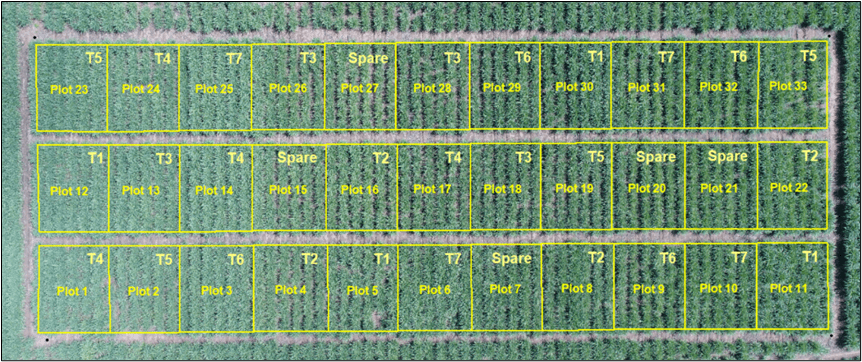
Geo-referenced drone image with plot overlay, Kaombe Farm, Malawi
A summary of the trial results
A cumulative increase in Yield (TCHa) and RV was found at higher dosage rates or re-application of product, following the common findings that dose rate and timing are relevant to results on crop. Secondly, the trial also illustrated that, in cane, a combination of Andermatt products yielded better results than when products were applied alone. These results suggest that by improving the base fitness of the plant early on, and then by sustaining plant health through the growth cycle, financial returns are greater than the input cost.
Yield Cane
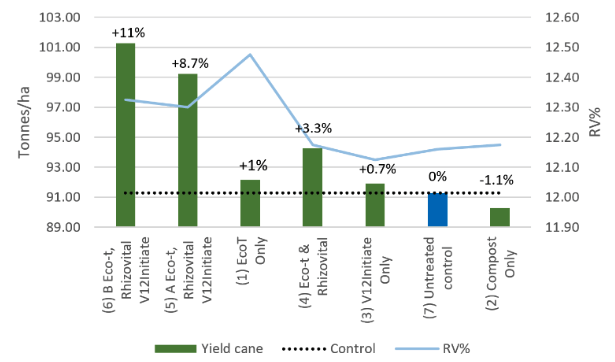
Figure 1: Cane yield TCHa and RV (%) recorded per treatment group on randomised trial plots, each fun across 4 replicated plots.
In terms of crop yield, while the weight of each individual stalk didn’t vary much between the treatments and the control, the findings indicate that using Andermatt products resulted in a larger number of stalks overall. The number of stalks per ha increased by up to 11% to 111,000 stalks/ha. Secondly, stalk length increased by 5%, up from 278 cm in the control. These are a key source of increased yield and will be a factor to consider for enhancing resiliency in ratoon cane.
The results indicated not only direct yield and potential economic benefits, but also promising additional benefits including; improved soil health, potential to improve efficiency of fertilisers applied, as well as a potential to enhance resistance against diseases and pests.
Future trials in progress
The sugarcane trials are ongoing and include further scaled commercial trials, trials in other regions of the country and under different soil conditions.
An increased number of Andermatt products is being included with the intention to improve fertiliser efficiency and crop stress tolerance. Additionally, the potential impact of improved plant health on reducing pest pressure is being evaluated. An important advantage considering the prevailing pressures from Yellow Sugarcane Aphid (YSA) in the industry today.
With these very promising results, we look forward to further unlocking the solutions that allow biological products to underpin success in this critical crop.
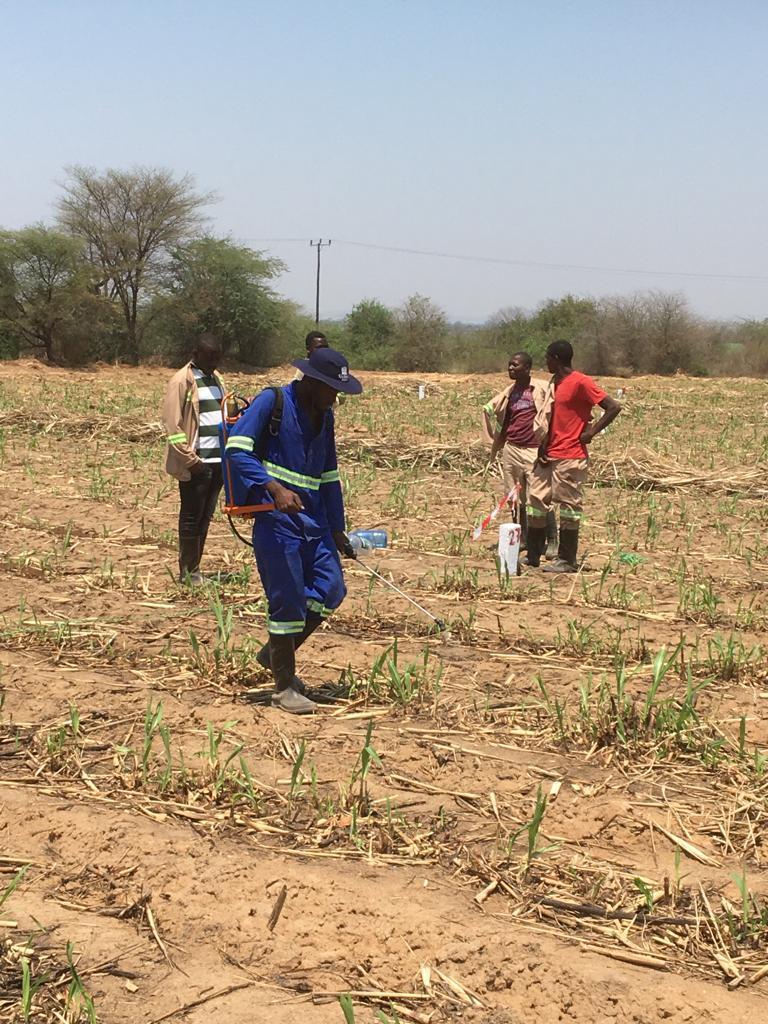
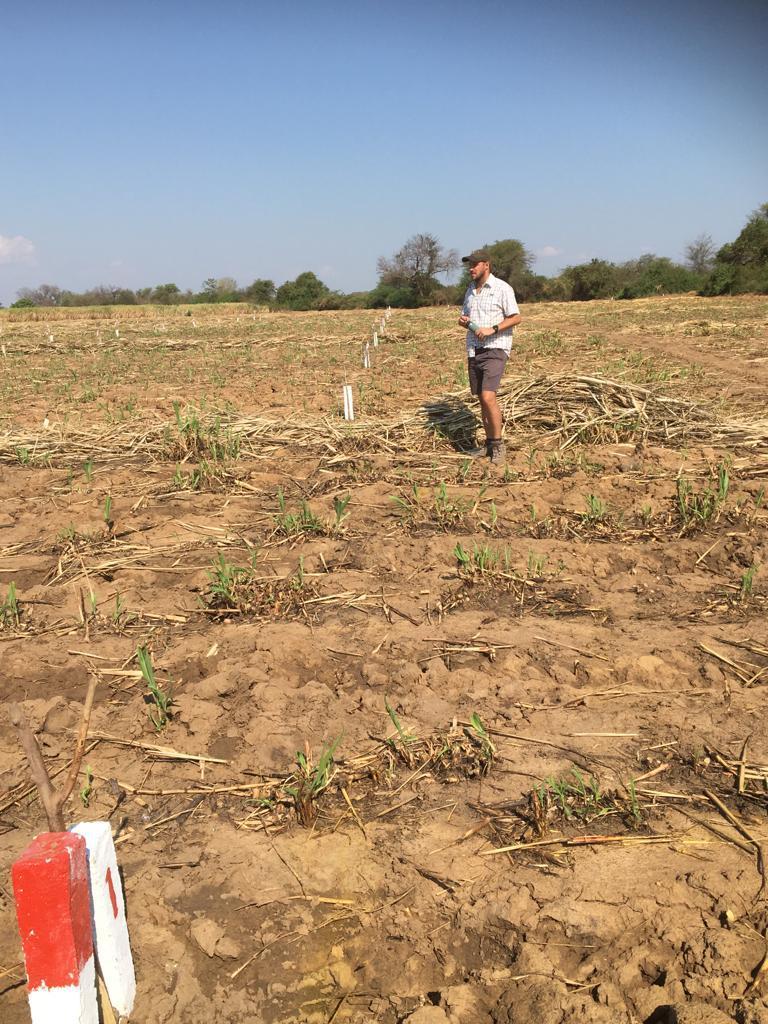
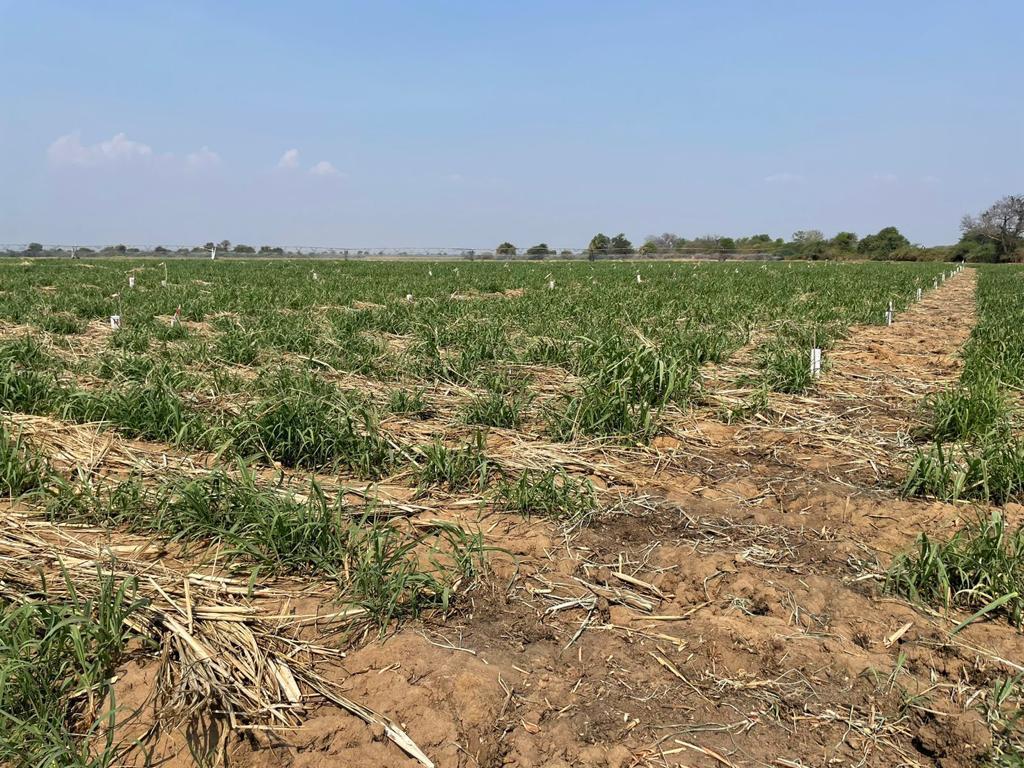
Trial Specifics

Treatments
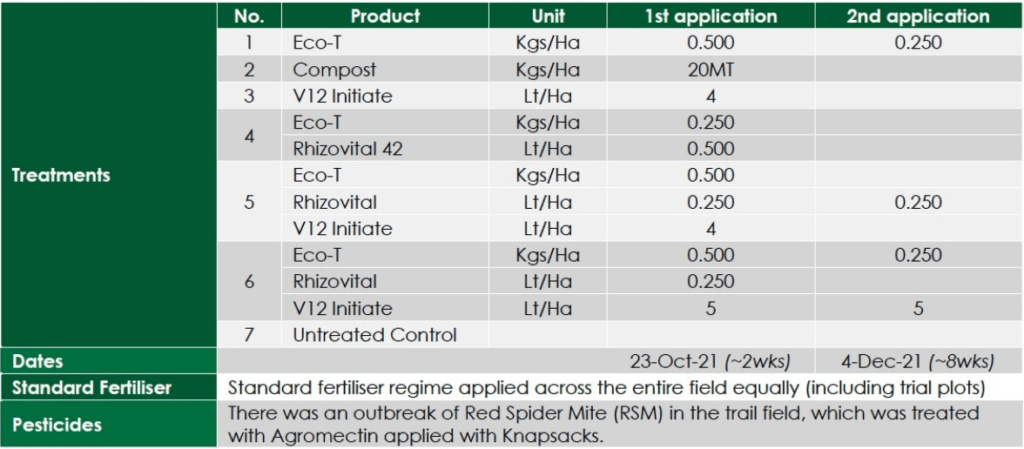
With these very promising results, we look forward to further unlocking the solutions that allow biological products to underpin success in this critical crop.


Trial specifics and Treatment Table For a copy of the full trial report, please contact
Michael Niland Michael.niland@andermatt.com